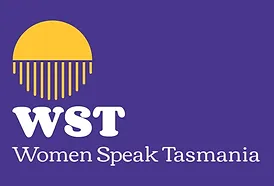Report from WST meeting 1 June 2025 from Neve.
Women Speak Tasmania is active in standing up for women’s rights, children’s rights and the rights of lesbian and gay people.
It was a good meeting. No, actually, it was a great meeting. Too often we forget the power of community and connection.
A sizable gathering of Women Speak Tasmania supporters gathered on a Sunday afternoon earlier this month. We sat together to share with each other why we were there, and then spent time discussing the history of the group and advocacy successes to date.
Our individual stories were, of course, varied. But without exception, each person who attended, shared a raw and personal story of the harms of transgenderism. Our society’s obsession with the toxic cultural mantra ‘just be kind’ was a thread that linked everyone’s stories. ‘Just be kind to who?’ was, I think, on most of our minds after hearing the real-life stories of loss and harm.
This movement has turned everything inside out. Women’s rights have become men’s rights. Heterosexuals ‘become’ homosexuals, and the other way around. Harm to children is labeled safeguarding. And safeguarding labelled harm (and in some places in Australia, simply deemed illegal). Victimhood is inverted – with those who are harmed, called perpetrators. Our society seems to be regressing and retreating to rigid gender stereotypes. Which on its own, is bad, but is even more sinister with the spectre of medicalisation to reinforce and cement unhealthy gender roles. Transgenderism has broken our institutions. Broken families. Broken community. Broken people.
What is happening is insidious. And for many of us in the room, it took a significant experience, or even several experiences, to truly recognise the harm. So there was a collective sense of understanding that many people in our community perhaps just haven’t thought deeply enough about the issues to ‘get it’. However, we also discussed how there are some in our community who have been alerted to this issue, who do understand the harms and should be acting accordingly but are choosing to do nothing. Is it cognitive dissonance? Apathy? A deep sense of fear of consequences – both practical and emotional? The inability to face their complicity in the past or present harm of vulnerable people? Or simply a lack of moral courage and a sense of self-preservation?
Consciously and sensitively reflecting on these possibilities matters. Understanding why people remain silent can help us work out who we need to speak with, how we can engage them, and when to act. At the meeting we discussed ways WST supporters could potentially contribute — whether by sharing stories for inclusion in the dossier, or by joining the growing list of people ready to be contacted for advocacy opportunities. Our next meeting on Sunday 10 August will have a focus on talking about what we can do and exploring how we can each contribute, in more detail.
In the words of the infectiously passionate Mia Hughes (paraphrased): ‘People keep asking me why I care about this issue. It is just such a fringe issue after all. Well, all I can respond to that is: why in the world don’t you care?’
Well said Mia.
